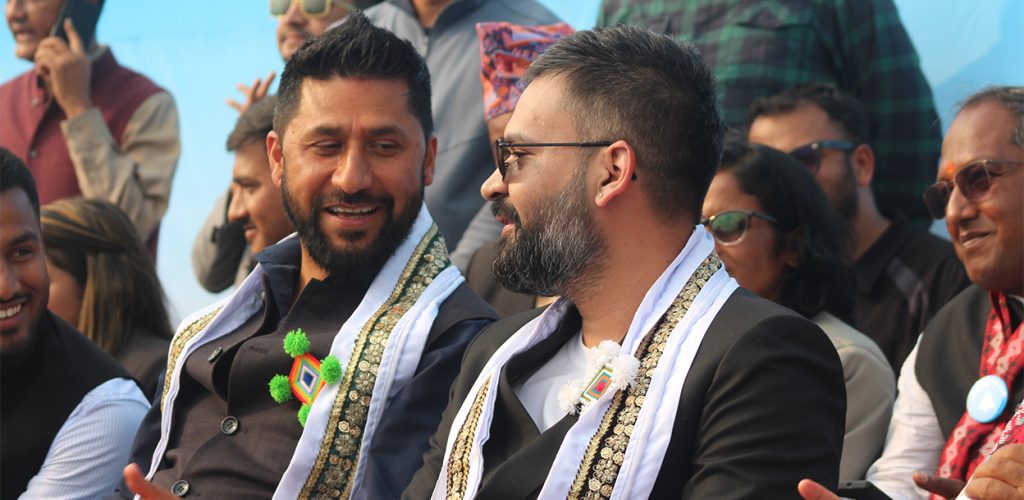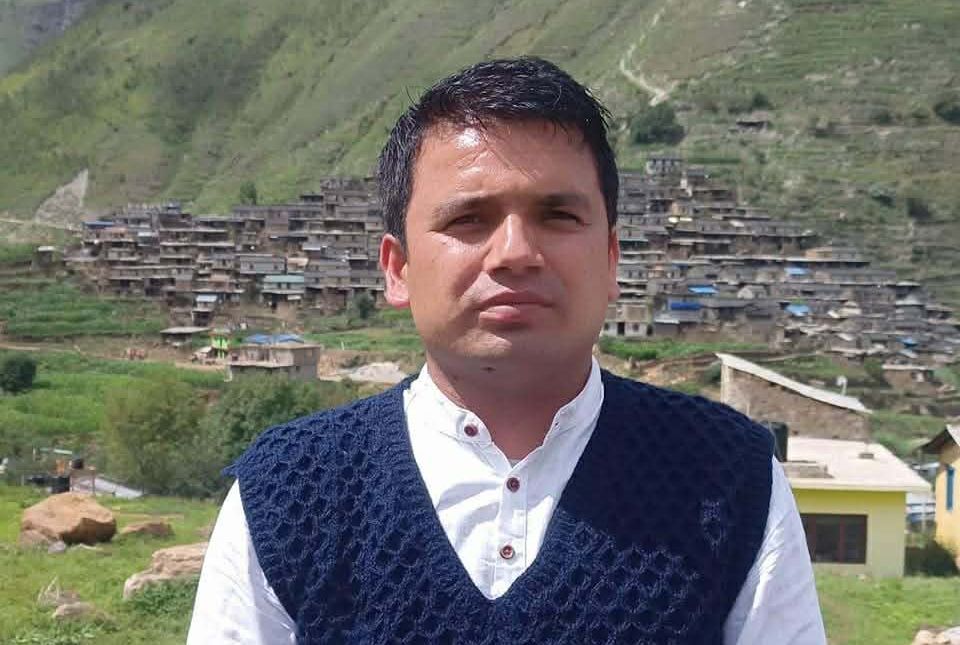
As of September 7, 2001, the civil war had ceased for a while. However, in a village in the Parsa district in southern Nepal, the settlement turned into a war zone with clashes between the Maoists, who wanted to hold a public meeting, and the resistance committee formed to prevent them from entering the area.
Among the 13 Maoist activists who had reached there to hold a meeting, some were arrested while others escaped. Three women were taken under control by the resistance committee and later gang-raped in public.
For this story, we have identified the three women as A1, B1 and C1. These women were captured and tortured for four days during Nepal civil war ceasefire. “I was conscious when seven people raped me until I was unconscious. When I regained consciousness, my limbs were broken. There were wounds all over the body,” says A1.
C1 had her breasts bitten, and there were bruises all over her body. In an attempt to save her, A1 shouted, “Do whatever you have to do to me, leave that girl alone. I am the person of this village. Kill me instead.” But they did not listen. After a while, the voice of C1, who was crying and calling out A1’s name, stopped. She had fallen unconscious as the rapists also beat her in the process. A1 later saw C1’s blood-stained breasts.
“She might have died there; B1 was with me,” says A-1, “My husband and human rights workers insisted and they handed me over to a journalist. My husband had to give 10 katthas (0.33 hectares) of land to them to let us go.”
A heavy price

As the civil war was ongoing, A1 wanted to join it.
The Maoists gave her the responsibility of the local leadership of the farmers’ organisation. During the ceasefire, the Maoists used to come home. The army, people who used to work in the police and local leaders of political parties used to pressurise and inquire about why the Maoists were there.
A1’s area was a new settlement set by those who came down from the hills, and they inclined more towards the Maoists. On the other side, most of those in the old settlements were involved in Nepali Congress, CPN-UML and Rastriya Prajatantra Party. As the Maoists intensified their activities, the UML-Congress leadership formed the resistance committee in the village.
A1 was active in the village and the Maoist leaders gave her the responsibility of holding a meeting nearby. On the day of the incident, A1’s husband and elder daughter were working in the fields whereas her son and daughter were in school. Suddenly they heard that the people on the resistance committee came towards them.
They ran here and there, but three women were under the control of the resistance committee. According to A-1, they were taken to the river and gang-raped by the resistance committee. After she fainted, they took her and locked her up in the VDC office.
During the civil war, journalists and human rights activists were not allowed to enter the village. Gambhira Sahani, a special representative of Prateek Dainik published from Parsa, entered the village by making connections with the local Chaudharys. “Initially, we were not allowed to enter the village. Only after establishing relations with the local Chaudhrys, we could do that and make our reports,” says Sahani.
The external team took the responsibility for A1 and B1 and freed them from the capture of the resistance committee. “The journalists became gods for us; we were saved from death,” she says.
Does time heal?

They escaped, but the 12-year-old son of A1 was also made missing by the resistance committee and is still untraceable among many such cases from the civil war. “We were displaced after the house burnt down. My children could not study and were left stranded.”
Showing the injuries on different parts of the body, she says, “Time has erased some evidence from the civil war. I have uterine and kidney problems, and my arms and legs are broken. Monthly, I have to take medicines worth Rs 1,300.”
A1 had joined the civil war with a dream of a country based on justice and equality. The Maoist party came to the government time and again and many party leaders have been in power ever since. Yet, justice has become a mirage for her while her perpetrators are rewarded.
After the peace process started, she filed a complaint with the local peace committee. It convened a detailed study of the incident. The incident was confirmed, and her complaint was also formally registered. Through the peace committee, the case has reached the Truth and Reconciliation Commission.
After two and a half decades, women who were raped in the Nepal civil war have now formed an organisation to seek justice. A1 is currently a central member of the National Organisation for Rape Survivors from the Conflict Period.
Despite knowing everything, she is still not getting justice, and it exhausts her.
But what will be the condition of women who have been publicly gang-raped in Nepali society? The series of pains and sufferings she experienced is excruciating. “My husband did not speak with me for 13 years. My father passed away without seeing my face, and it has been 21 years since I, and by that extension my children, did not visit my parents’ home; they do not talk to me or call me for family functions.”
Struggle for hopes

In pursuit of justice, A1 has also met leaders from the CPN-UML. “Even if they say they will meet and give justice, that they will make them (the culprits) lawmakers,” she says.
Despite her demands that the Maoists should give her justice, the party is not so positive. But she says, “If they don’t give justice, I will go and self-immolate in front of Prachanda’s (the party chairman Pushpa Kamal Dahal’s) door.” She even did a hunger strike at the gates of the Biratnagar Conference of the then United CPN-Maoist held on May 1 to 3, 2014. However, she was not allowed to enter even for three days and returned home, crying.
Jalim Miya, who led the resistance committee, joined the Maoist party in 2017 and became a candidate in the local elections held after that. When he was called on the stage to take a seat in a programme she had attended in Parsagadhi, she could not stop the tears.
“Nowadays, as soon as I see any Maoist programme, I feel like going inside to beat them and die later. The civil war survivors need justice, and dignified life as long as we breathe.” If they live for the next 5 to 10 years and still do not get justice, she says she wants to die.
However, the situation is not easy. “There is no food, no shelter, no body of my missing son, we were left stranded,” she says.
Strengthening their voices

Now she plans to raise her voice for justice. “We will fight until our last breath. Even if it is only for one day, we will die after getting justice.”
Instead of taking action, wartime convicts are being honoured with garlands and brought to the parties. “Why should the perpetrator from the civil war be rewarded and the victim should only walk away crying? The party leadership must know what the love for family members is like,” she questions, “Our womb is also the same. We are also women. And our son is also a person? How do you think we are living?”
She has other questions like “Was the civil war for this?”
She says the Maoist party should return their old lives to them. “Is everything sorted after Prachanda became the prime minister and some leaders became ministers? Does the leader have no wisdom? No consciousness? Will they do anything? My husband used to love me so much. But this is the life of a woman raped in public now.”
“First of all, I did not join the party for personal interest. I want justice. Second, I want my son back. If he had been alive today, he would have been a minister too. When the leader’s son dies, they build a martyr foundation, but why ignore our children when they go missing during the civil war? Who will build a foundation for C1, who is still missing? For whom did she carry the gun, who forced her? The leaders will pay for living a luxurious life in the paradise that is the result of our tears and blood.”
Once, the party leadership honoured the female leader, a rape victim, by giving the khadas. “I cried because I felt that it was all that they thought we deserve.”
“The government must admit and address this. The leaders have ignored their plight while they suffer through life,” says Devi Khadka, the coordinator of the National Organisation for Rape Survivors from the Conflict Period. She alleges that even the justice organisations are using the civil war survivors as mere tools rather than ensuring them justice.
Despite everything, A1 still holds dear the light of hope. “After we started the organisation, the perpetrators have started getting scared,” she says, “I feel threatened but I am not afraid. [After all the troubles during the civil war,] what is left for me to fear now?”
This story was translated from the original Nepali version and edited for clarity and length.


























